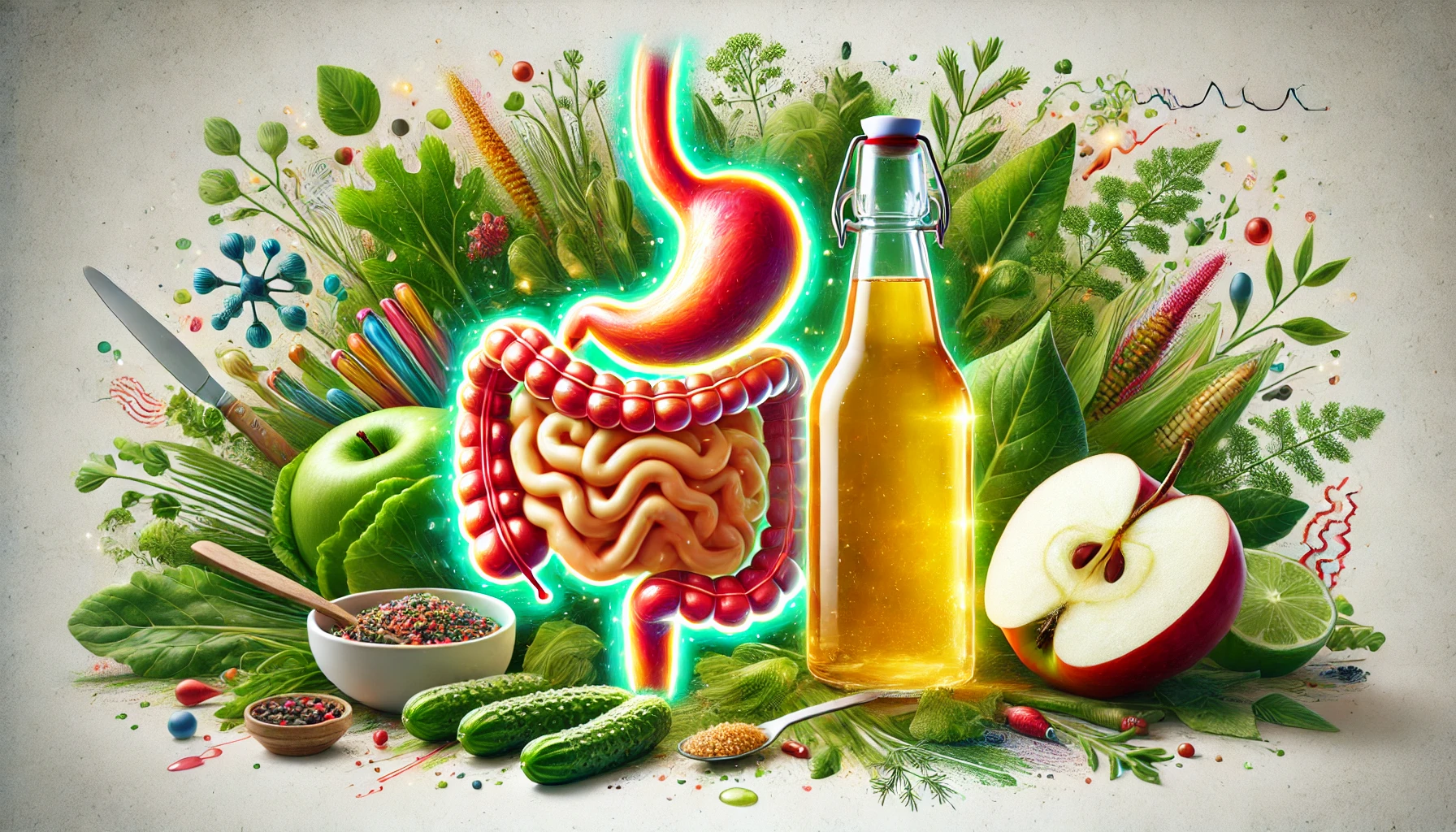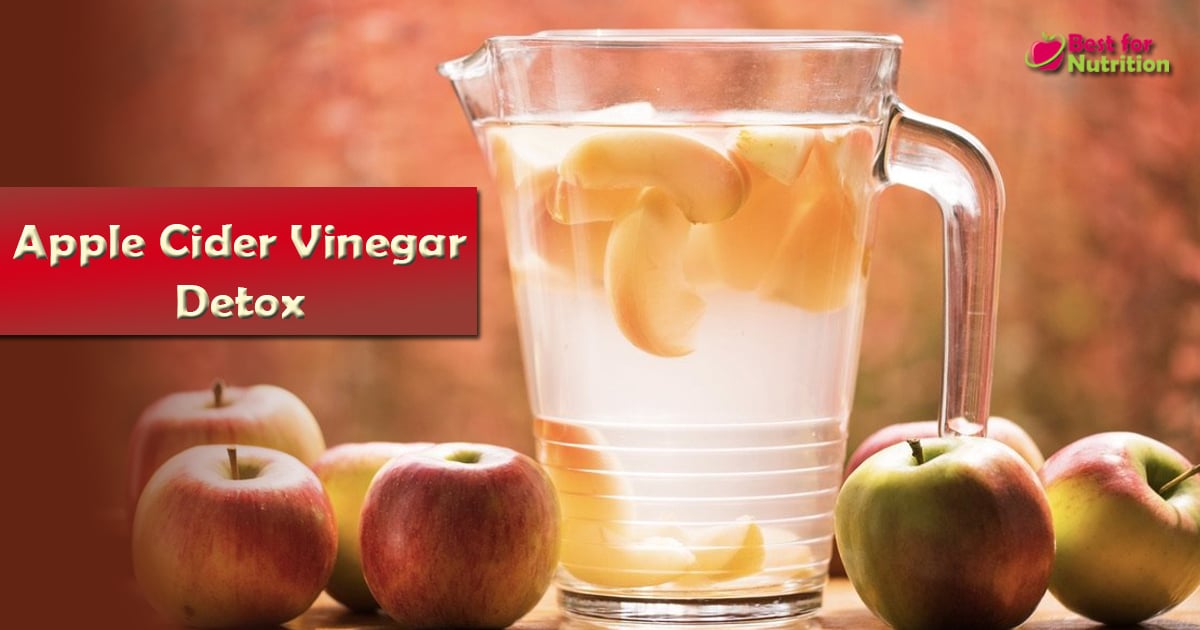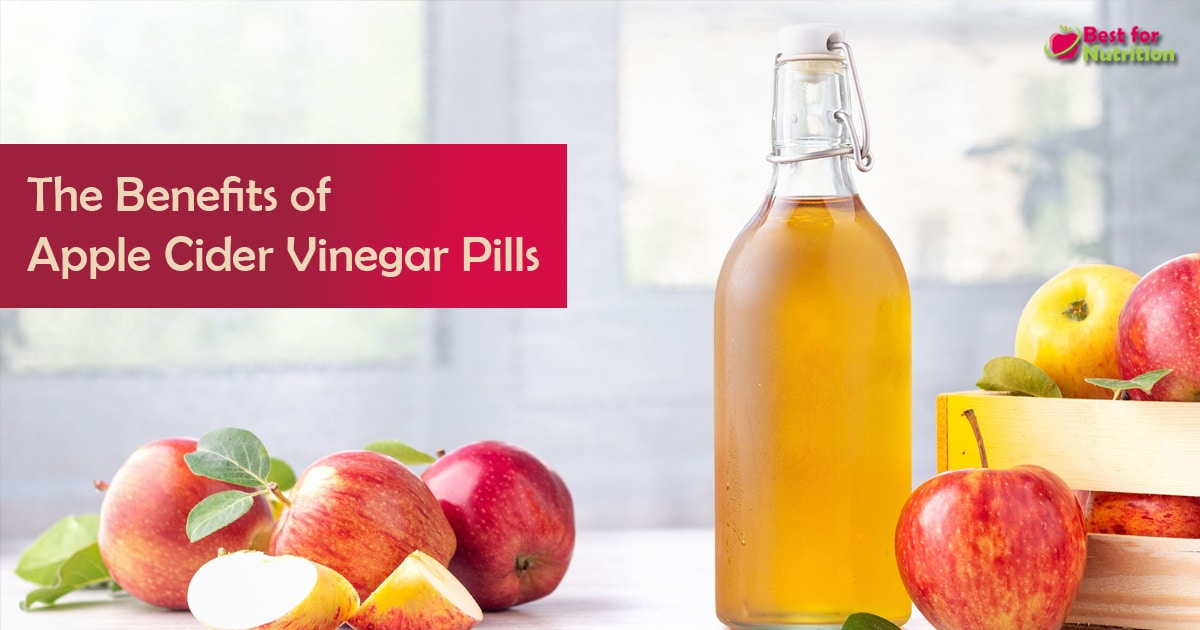Do you experience the occasional burning sensation in your chest? Or episodes of intense bloating and stomach pains after having a heavy meal close to bedtime?
Well, you could be suffering from acid reflux and you might not even know it!
In this article, we will outline everything you need to know about acid reflux and the use of natural home remedies such as apple cider vinegar for its treatment.
What are you waiting for? Read on to find out!

What is Acid Reflux?
When we eat, food travels down our food pipe (i.e. the esophagus) and into the stomach to be digested by stomach acids. A lower esophageal sphincter (LES) is present where the esophagus opens into the stomach and prevents the backflow of digestive fluids.
The LES usually remains closed during normal digestion, opening only to facilitate one-way traffic down the food pipe. But sometimes the musculature of the LES becomes weak. The sphincter fails to close completely or opens up at inappropriate times (1).
This can lead to regurgitation of the strong stomach acids into the oesophageal tube, which causes a burning sensation in the lower chest.
Summary: Acid reflux occurs because of a weak lower esophageal sphincter (LES). The LES doesn’t close properly and permits the strong stomach acid to enter into the esophagus.
What is the Difference Between Acid Reflux, HeartBurn, and Gerd?
A layman term used to describe acid reflux is heartburn, although it has nothing to do with the heart.
Heartburn is just one of the many symptoms of acid reflux. It’s an uncomfortable, even excruciatingly painful, burning sensation in the lower part of your chest.
A chronic form of acid reflux is GERD (Gastroesophageal Reflux Disease), in which patients experience heartburn, persistent discomfort, and bloating quite frequently. If GERD is ignored, it may even lead to esophageal cancer (2).
Summary: Heartburn is one of the many symptoms of acid reflux, characterized by a burning sensation in the chest. GERD is the chronic form of acid reflux.
The Symptoms of Acid Reflux
Not everybody with acid reflux will experience the same symptoms. The symptoms range from mild to severe and depend on person to person.
They are exacerbated on lying down, usually at night, since stomach contents can move easily into the food pipe in a horizontal position.
The most common symptoms we see in patients suffering from acid reflux are: (3).
- Heartburn
- Sour taste in the mouth
- Oral health issues such as bad breath and teeth erosion
- Dyspepsia or Indigestion may present with bloating, nausea, the feeling of fullness, etc
- Regurgitation of food
- Sore throat & hoarse voice
- A feeling of a lump in the throat
- Difficulty in swallowing
- Dry cough
Long-term complications of acid reflux may also include inflammation of the esophagus with internal bleeding and ulcerations, and potential cause of esophageal cells to undergo cancerous transformation (4),(5).
Summary: Apart from heartburn, acid reflux also causes issues in the oral cavity and throat such as bad taste and breath, tooth erosion, cough, difficulty swallowing, sore throat leading to a hoarse voice, etc. Chronic acid reflux can cause bleeding and ulcerations inside the esophagus.
What is Apple Cider Vinegar?
Apple Cider vinegar is generally made by fermenting the sugar present in apples. Yeast is added to convert it into alcohol which is then further converted into acetic acid, a major component of the vinegar (6).
Natural or Organic apple cider vinegar has a brown cloudy appearance with a “mother” at the bottom of the jar, which is said to be rich in protein and enzymes. Processes of filtration and pasteurization remove the mother from this juice and leave a clear amber color liquid that we usually see in stores.
Summary: The sugar present in apples is fermented into alcohol using yeast, and then to acetic acid, which makes up most of the apple cider vinegar.
Apple Cider Vinegar and its Effect on Stomach Acid
Apple cider vinegar has a lot of health benefits, ranging from weight loss and improved digestion to blood sugar regulation and improvement of hair texture (7), (8). But among the most popular uses of apple cider vinegar, control of stomach acidity is one of them.
While there isn’t any concrete scientific literature that talks about the effects of apple cider vinegar on acid reflux and heartburn, many are raving about its benefits of treating mild acidity. Still, others reported that apple cider vinegar actually worsened their acid reflux symptoms.
So what’s the real deal then? Should you use ACV to treat your heartburn or not? Let’s quickly look at the justifications for using apple cider vinegar in treating acid reflux symptoms.
- Apple cider vinegar is said to bring down the pH of your digestive tract. Some say that patients with acid reflux have too little stomach acid, and introducing ACV into the stomach may improve acid reflux symptoms, by increasing the acidity.
- Others report that when a mild acid like ACV is introduced into the digestive tract, it prevents excess acid from being produced in the stomach and hence neutralizes the pH.
Whatever be the mechanism, many patients swear by this magical health drink that eases their symptoms of indigestion. Presently, more research needs to be conducted on the consistency and reliability of apple cider vinegar in treating heartburn.
Summary: ACV neutralizes the pH of the stomach and prevents excess acid production.
How to Use Apple Cider Vinegar to Treat Acid Reflux
In case you decide to give apple cider vinegar a go, make sure you read this entire article to know-how!
A noteworthy finding is that apple cider vinegar may aggravate indigestion symptoms in some people who are already suffering from moderate-to-severe acid reflux.
The esophagus may get irritated by the use of apple cider vinegar and lead to further inflammation of the esophageal lining. For them, it is best to avoid it altogether.
However, to ensure the best results, mix 1 tsp of apple cider vinegar in a glass of warm water and drink it on an empty stomach every morning. You can have it after a heavy meal to balance out the acidity in your gut too. Just remember not to drink apple cider vinegar if you are suffering from chronic or severe acid reflux. Consult your doctor for alternative treatment forms if this is the case.
Summary: To get relief from acid reflux, mix 1 tsp of apple cider vinegar in a glass of warm water and drink it on an empty stomach or after a heavy meal to balance out the acidity.
The Benefits of Apple Cider Vinegar
Apple Cider Vinegar as a Health tonic
Apple cider vinegar majorly comprises of acetic acid (about 5-6%), small amounts of malic, lactic, and citric acids, as well as trace quantities of minerals, amino acids, and antioxidants. It is this acetic acid that is responsible for many of its marvelous health benefits (9).
Summary: Acetic acid is the major component in ACV and responsible for its various health benefits.
Apple Cider Vinegar has Antimicrobial Properties
There is strong scientific evidence to suggest that ACV has antibacterial and antimicrobial properties. It was used as a popular remedy to disinfect wounds and treat fungal infections by the Greeks as early as 400 BC.
Because of its antibacterial properties, you can go ahead and add in ACV to any of your food items too! It not only preserves them but also adds great flavor and taste to it!
Food items pickled with apple cider vinegar can stay refrigerated up to 5-6 months without spoiling. The acetic acid content is responsible for preventing the growth of E. Coli, a bacterium that causes food spoilage (10), (11).
When applied topically, that is on the surface of the skin, ACV can help treat skin conditions such as acne, dermatitis, and scalp eczema because of its antibacterial and antifungal properties. It is also an astringent and can be used as a skin toner.
Summary: Historically, the Greeks used ACV to disinfect wounds and treat fungal infections. Nowadays, ACV’s antibacterial properties are used for preserving and pickling food. ACV also has many skin-care benefits.
Apple Cider Vinegar Blood Sugar Regulation
The role of ACV in the regulation of blood sugar levels was verified by a study that examined both the long-term and short-term effects of vinegar (12).
They found that individuals who consumed vinegar showed much more stabilized levels of blood sugar within 30 mins of consumption of the ACV.
They also found a significant reduction in the HbA1c levels (a factor used to evaluate blood sugar levels) of individuals who regularly consumed apple cider vinegar for 8-12 weeks.
Summary: Studies show that consumption of ACV brings down blood sugar levels within 30 mins.
Apple Cider Vinegar Helps Promote Weight Loss
The internet is full of blogs and websites promoting apple cider vinegar as a magical formula for weight loss. But what’s the real story?
In 2018, researchers studied a group of 39 people for 12 weeks, who were randomly assigned to either a calorie deficit diet with ACV or a calorie deficit diet without ACV (13).
They found that the group who drank ACV with their meals lost more weight and had a lower BMI at the end of the study.
However, we must note that all the studies pointing to ACV’s role in promoting weight loss were conducted on modest sample sizes and did not seem to bear significance for a larger population. Therefore the verdict awaits more information for a conclusive statement.
Summary: Studies conducted on finding the effectiveness of ACV on weight loss found that individuals who drank ACV with their meals lost more weight compared to those who didn’t. They also had a lower BMI.
Improves Heart Health
A study confirmed that acetic acid contributed to reduced levels of blood cholesterol and triglycerides (a type of fat) in rats, by preventing fat production in the liver and increasing its excretion through bile (14).
Another study found that acetic acid reduced the blood pressure of rats that were fed vinegar long term (15). However, there isn’t enough conclusive evidence to suggest that ACV contributes to a reduced risk of heart diseases in humans.
Summary: Pilot studies conducted on rats found that acetic acid contributed to reduced blood cholesterol and triglyceride levels. Long term vinegar consumption also reduced their blood pressures. The verdict is still on for humans.
Risks And Precautions of Using ACV for Acid Reflux
As with any other form of acid, drinking ACV may cause teeth to slowly erode away. Dental erosion is a common concern among regular ACV drinkers or people who consume ACV in excessive quantities (16).
To beat dental erosion, simply use a straw to drink your apple cider vinegar or follow up with a thorough mouth rinse.
Throat and esophageal burns have also been seen whenever undiluted apple cider vinegar is taken (17).
For this reason, a history of peptic ulcers in the stomach or digestive tract may be a contraindication for the use of apple cider vinegar as a health tonic. Instead of controlling acid reflux, it may worsen it.
Apple cider vinegar when taken in large amounts can also interfere with heart medications and diuretics. So make sure you consult with your doctor if you’re on a medicated regimen before starting with ACV.
A woman who consumed 250 ml of ACV diluted in water every day for six years was admitted to the hospital with critically low potassium levels and osteoporosis (a condition with very-low-density bone structure). Doctors found that the acidity in her blood led to leaching out of essential minerals such as calcium and potassium from her bones (18).
Summary: Risks associated with drinking ACV include teeth erosion and burns of the throat and esophagus. People on heart medications, diuretics, and with a history of peptic ulcers should not drink ACV.
Other Natural Remedies for Acid Reflux
Probiotics: Probiotics are a great way to treat indigestion since they contain so many beneficial bacteria necessary for gut health. They help in balancing microflora in and around the stomach while also providing relief from indigestion (19), (20).
However, it’s vital that we buy probiotics from dependable sources to ensure top-quality.
Aloe Vera: We all know about the amazing benefits of applying aloe vera externally on our bodies. But has anyone heard of what it does internally?
Aloe vera reportedly helps in relieving heartburn and soothing the digestive system (21), (22). Why not give it a try?
Baking soda: This common household item is found in all of our kitchens! It has a range of uses from skin-care to cleaning and disinfection, but did you know baking soda is also an effective antacid? (23), (24).
Yup, its properties as a base are very similar to over-the-counter (OTC) antacid medications we get in the supermarket. But over-ingestion may lead to toxicity in the body with effects on the heart, respiratory system as well as neurological symptoms (25). Then there’s also the issue of the sour taste.
Chewing Gum: Chewing sugar-free gum 30 mins after a heavy meal helps in relieving acid reflux symptoms in certain individuals.
Essential Oils: Essential oils such as peppermint and ginger are becoming increasingly popular home remedies for acid reflux. But sometimes, peppermint essential oil can actually worsen acidity symptoms by irritating the esophageal lining.
Bananas: Although there isn’t any clear evidence about the effect of bananas on acid reflux, they are certainly gentle on the stomach and can be a great snack option if everything else fails!
Summary: Apart from apple cider vinegar, probiotics, bananas, baking soda, aloe vera, essential oils, and chewing gum can help relieve some symptoms of acid reflux.
The Final Note
Apple Cider vinegar is a useful addition to your diet when used in moderation and supplemental to a healthy lifestyle. But there is no concrete scientific evidence to prove its stand-alone benefits.
Theories that have been postulated on the miracle properties of acid reflux prevention are based purely on anecdotal evidence. One must realize that on no account should you try it as a home remedy if you’re already suffering from severe acid reflux or GERD.
But if it’s just the occasional heartburn, why not give it a try? You might love it or you might hate it. You never know. The risk is minimal if used in moderation and diluted in ample quantities of water.
That being said, maintaining a healthy diet rich in protein (egg, lean meats, fish) and fiber sources (leafy vegetables, cucumbers, oatmeal) along with healthy fats will help prevent the acid reflux, instead of relying only on one treatment method.
A low alcohol and tobacco consumption lifestyle with avoidance of substances that can trigger the esophageal lining should be avoided. Some of them are spicy and fatty foods, caffeine, and carbonated drinks. A proper eating schedule can be key to keeping the acid reflux at bay.





